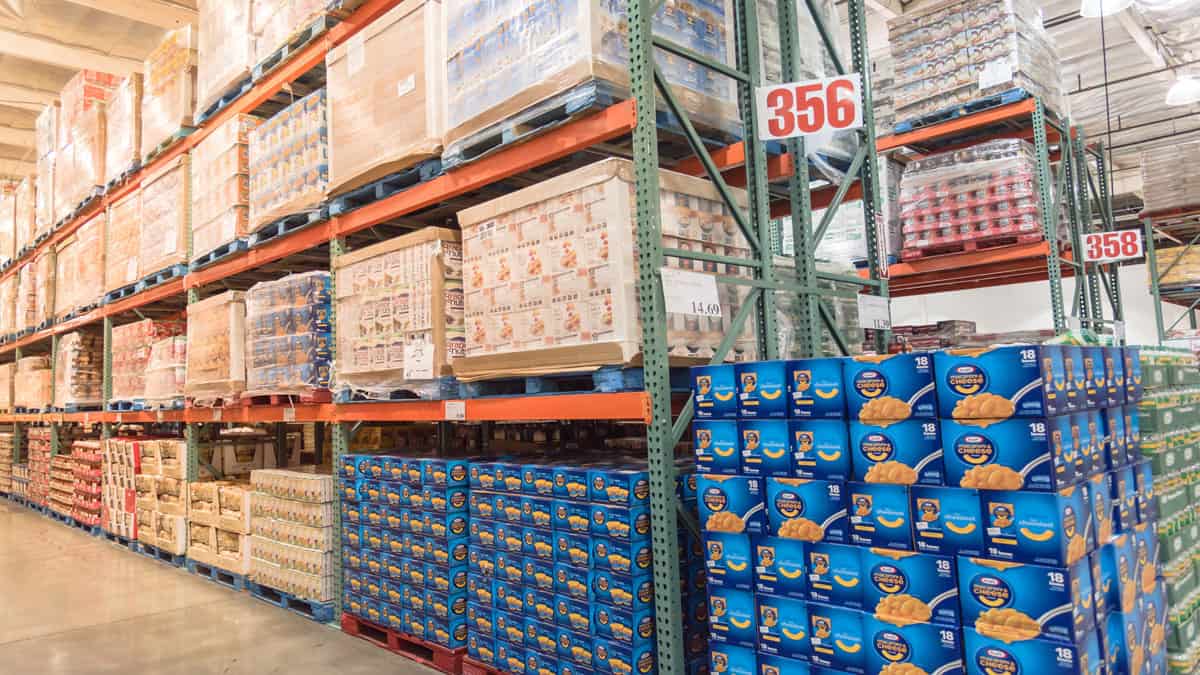THIS POST MAY CONTAIN AFFILIATE LINKS. PLEASE SEE MY DISCLOSURES. FOR MORE INFORMATION.
Navigating inflation is a certainty in today’s economy, but how one manages to do that can vary significantly from person to person.
Are you struggling to work on your current budget while purchasing many of the same products and services?
If so, let’s walk through 12 of the best ways to save money while everything goes up in price.
#1. Only Buy What You Can Afford to Pay for Right Now

It’s easy to leverage credit to buy things you want, but it can be severely painful later if you don’t have the money to repay it.
Never buy things you can’t afford to pay for when trying to save money.
If you have to set aside money until you have enough for the price tag, it’s best to do this.
#2. Always Spring for the Generic Products

Name-brand products are typically overpriced and overrated.
Whether it’s toiletries or essential pantry goods, see if you can find a generic version that costs less.
You might be surprised to discover they’re the same product with different packaging.
#3. Take Advantage of Coupons and Rebates

Coupons and rebates can be a lifesaver when trying to stretch your money further.
Look at local coupons in the paper before shopping to save on things you would purchase anyway.
If you’re shopping online, see if some apps or websites offer rebates and coupon/promo codes on your purchases.
#4. Fall in Love With Home-Cooked Meals

It’s always been a money-saving tip to avoid fast food if you want to stay within your budget.
However, inflation has only continued to raise the price of fast food to a ridiculous level, resulting in one meal practically breaking the bank.
Learn how to meal prep and find the right deals to make more food at home for a fraction of the cost.
#5. Get an Accountability Buddy

Saving money can be difficult.
This is why it’s always good to have an accountability buddy.
Whether you celebrate your victories, share money-saving hacks, or prevent each other from making purchases you don’t need, it can be much easier to navigate this economy with someone who’s on your side and understands your financial situation.
#6. Buy Some Staples in Bulk

Buying in bulk isn’t always the most efficient way to save money.
But there are some excellent deals out there that you should take advantage of.
You can save money from non-perishables to things like toothpaste by purchasing larger quantities of your necessities.
#7. Address Repairs Before They Become a Problem

When you’re looking to save money, try to avoid making certain purchases altogether.
Repairs are one type of purchase you should never put off.
More often than not, ignoring necessary repairs leads to bigger, more expensive problems in the future.
If you want to save money, take care of those problems now.
#8. Keep Your Eyes Peeled for Freebies

Plenty of businesses give away things for free.
Look out for forums or communities like subreddits where you can stay on top of these announcements and sign up for freebies.
It’s easy to get many backup face care and fitness products doing this.
#9. See What You’re Able to Downgrade

One of the most important things to do when you’re trying to save money is to downgrade.
This can come in multiple forms.
You can downgrade subscription plans and deal with ads, go without the best technology, and even downgrade workout gear to something more generic.
You don’t have to have the best to be the best, especially if it’s coming at the cost of your financial stability.
#10. Give Yourself Space When Considering Big Purchases

Major purchases require careful financial planning and consideration.
Always give yourself time to think about a purchase that will take a ton out of your budget before you follow through.
Unless it’s essential, it’s better to hold off until you’re in a better position financially.
#11. Stick to an Extremely Detailed Budget

Budgeting can be a scary word, but it’s something you have to have when you don’t have disposable income.
No matter where you’re at, set aside time to develop a budget to help you understand where your money is coming from and where it’s going.
Your wallet will thank you.
#12. Use Credit Cards Only When Necessary

Carrying some debt is a must to maintain a good credit score.
However, you shouldn’t lean too heavily on credit cards as you can easily plunge yourself into debt.
If you need to, keep them in a safe box where you can’t easily reach them and delete them from your phone’s e-wallet.
This will help you only use debit or cash on necessary purchases.
How to Get Out of Debt

If being in debt wasn’t bad enough, trying to dig yourself is worse.
Combine the setbacks you face and the time it takes, it’s no wonder many people feel trapped.
But there is hope.
Here is how to get yourself out of debt once and for all.
How To Get Free Food With No Money

If you are short on cash, not eating doesn’t have to be a reality.
There are options out there that allow you to get free food, even if you don’t have any cash. Here is what you need to do.
How To Get Free Food With No Money
Alternatives To Cable TV

Are you sick and tired paying your cable bill?
In the past, your only option was going without TV. But not anymore. Now there are many options out there.
Here are the best ones to look into.
How To Save Money When You’re Broke

When you have no money, the idea of saving sounds impossible. In fact, for many people, the idea never crosses their mind because they are only focused on getting money to survive.
But there are steps you can take to actually save money even when you are broke. Doing so will help you change your financial life faster than you thought possible.
HOW TO SAVE MONEY WHEN YOU’RE BROKE
Free Budget Templates

It can be difficult to start budgeting from scratch.
While there are apps out there, some people like their privacy. This is where a spreadsheet budget comes into place.
But who wants to build one? Luckily there are some great free budget templates to use.
Here are the best ones.
This thread inspired this article.
I have over 15 years experience in the financial services industry and 20 years investing in the stock market. I have both my undergrad and graduate degrees in Finance, and am FINRA Series 65 licensed and have a Certificate in Financial Planning.
Visit my About Me page to learn more about me and why I am your trusted personal finance expert.

